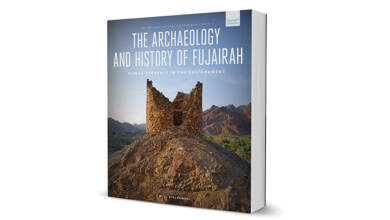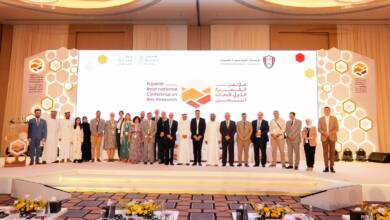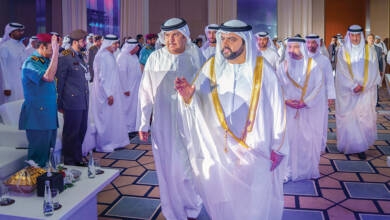Eid Al Adha explainer
What is Eid Al Adha
Eid Al Adha is one of the two festivals of Islam and is celebrated by all Muslims on the 10th day of Dhu Al Hijja.
Eid Al Adha is a 3 day holiday, UAE residents should expect a long weekend.
What do Muslims do?
The Muslim festival Eid Al Adha marks the conclusion of the important worship of Haj or pilgrimage to Mecca.
At the end of the Haj, Muslims throughout the world celebrate the holiday of Eid Al Adha (Festival of Sacrifice).
During the Haj, Muslims remember the trials and triumphs of the Prophet Abraham. The Qur’an describes Abraham (PBUH) as follows:
One of Abraham’s main trials was to face the command of God to kill his only son. Upon hearing this command, he prepared to submit to Godis will. When he was all prepared to do it, God revealed to him that his “sacrifice” had already been fulfilled. He had shown that his love for his Lord superceded all others, that he would lay down his own life or the lives of those dear to him in order to submit to God.
So why do Muslims sacrifice an animal on this day?
During the celebration of Eid Al Adha, Muslims commemorate Abraham’s trials, by slaughtering an animal such as a camel, sheep or goat. This action is very often misunderstood by those outside the faith.
The meat that is retrieved from the sacrifice of Eid Al Adha is usually given away to needy people. When you sacrifice during this time, you are doing it to actually feed the poor.
The act symbolizes our willingness to give up things that are of benefit to us or close to our hearts. It also symbolises our willingness to give up some of our own bounties, in order to strengthen ties of friendship and help those who are in need.
Duties: What Muslims should do on Eid Al Adha?
On the day of Eid, there are some things that Muslims should do in keeping with the Prophet Mohammad’s (PBUH) Sunnah.
Wake up early
Have a healthy breakfast
Take a shower and wear perfume to smell good
Make sure you are wearing clean and modest clothes
Perform the Eid Al Adha prayers
Generosity during Eid
Wish everyone a “Eid Mubarak” (Have a blessed Eid), or “Eid Saeed” (Happy Eid).
It is also a good Islamic practice to call family and friends over the phone, or send gifts.
Remember the true spirit of Eid is reflected in extreme generosity to the poor and the needy. So a Muslim should be charitable as best as he or she can. There’s plenty of ways you can contribute to the less fortunate this Eid, while still staying safe, like SMS donations with Dar El Ber or send a needy family a grocery delivery.
Arafat Day explainer
What is Arafat day?
Taking place roughly 70 days after the end of Ramadan, Arafat Day marks the second day of Haj, or pilgrimage.
The occasion also marks the day when a verse of the Quran revealed that Islam was perfected, and when Allah’s blessings were completed.
Mount Arafat is the site where Prophet Mohammad (PBUH) gave his farewell sermon. Arafat day occurs the day before the start of Eid Al Adha.
When is it?
Arafat day falls on the ninth day of Dhu Al Hijja according to the ‘hijri’ calendar. It occurs around over two months after Ramadan, which was observed in June earlier this year.
What is done?
At dawn on Arafat Day, many Muslims travel from Mina to Mount Arafat, which is just outside of Mecca. They remain on Mount Arafat until Maghrib prayers. The distance between Mina and Mount Arafat is about 20km.
To complete the Haj, Muslims must stand on Mount Arafat, or the pilgrimage becomes invalid. Muslims who have completed the Haj do so to have their sins expiated. Those who are unable to travel to Mecca for Haj may fast instead.




